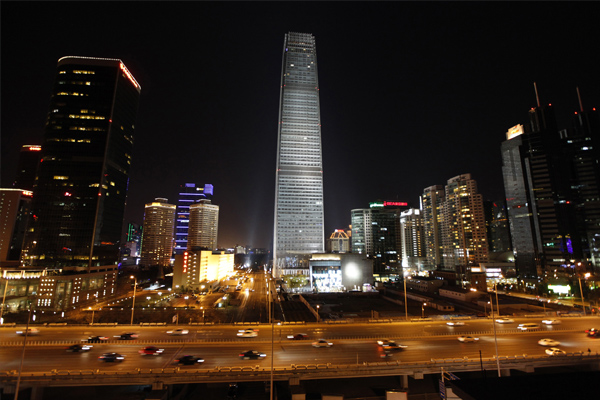
Beijing’s central government is going through a tug of war between letting market forces play a decisive role and strengthening government control over the market. As the economy sputters and stock turmoil continues, companies and law firms need to adjust and take advantage of opportunities in the new economic reality. Shangjing Li reports, with additional reporting from Elzio Barreto
The Chinese economy is bad, and lawyers unanimously expressed their concerns in interviews with ALB.
Almost a year after President Xi Jinping vowed to uphold the “rule of law”, China‘s stock market has been through a roller coaster ride, and so is the central government’s attitude towards a freer economy.
When Jinping took office in 2013, two of his main tasks were to end the pervasiveness of corruption in the government, and to giving the market “a decisive role” in allocating resources.
The reform plans went very well at first, especially in the first half of this year, when the bullish market stunned investors across the world. News about financial reforms also abounded: there was a good number of massive initial public offerings in the country, and the much-anticipated IPO registration system – expected to be launched later this year – will soon revamp the redundant listing process.
These factors seemed to indicate that the economy was on the right track. But the stock market crashed in June, and it just keeps on falling. On August 11, along with the policy interventions by the security regulators, the People’s Bank of China (PBOC) engineered a surprising 2 percent drop in the yuan’s official rate set by the bank against the dollar, which resulted in a 4 percent decrease in the currency’s market rate – the yuan’s steepest plunge in two decades. The PBOC has tied the yuan’s de-valuation to its efforts to make the currency value more market-driven by resorting to a strategy that it has promised to use less of: direct intervention.
The market experienced its worst day on August 24, when it plummeted by more than eight percent – its biggest one-day loss in eight years. Struggling to respond to this downward spiral, China’s biggest brokerage firms unveiled a Beijing-endorsed plan to buy shares. Meanwhile, in a sharp twist of events, regulators jumped in to ban short sales and halted all further IPOs.
The series of controversial government interventions have caused many to decry the lack of communications and transparency from regulators as well as speculate that Beijing is in danger of reverting to its conventional command-and-control approach.
Certainly, the government’s ambivalence has caused a debate among economists and lawyers. Some have suggested that Beijing should tolerate the disconcerting economic swings in the short term, if it is truly seeking a freer and more legitimate capital market. But others have tried to justify Beijing’s decisions.
“The core of the central government’s reform is administrative simplification. It demands central divisions to transfer power to lower levels, and activate the market magic. But besides handing off power to the lower levels, the central government should continuously strengthen supervision during and after market activity, which means it needs to implement the policy of ‘open the front and hold the back end’,” said Ding Liang, a Beijing-based partner at DeHeng Law Offices.
Du Guoping, a partner at East & Concord, told ALB, “In capital markets, implementing the ‘rule of law’ means strengthening laws and regulations based on capital market laws. This is not contradictory to the government’s push for administrative implications and handling power to lower levels. The latter is focused on lowering the threshold of capital market entrance and giving the market bigger power. Once companies come into the trading market, they need to face strict regulation.”
Back to topPUSHING FOR A MULTI-LEVEL CAPITAL MARKET
Despite the government’s inconsistency and clashes of mindset when handling finance volatility, it has a solid understanding of the necessity of heading towards an efficient system.
Beijing, joining its peer cities Shanghai and Shenzhen, has been working to build a multi-level capital market for China in the past few years. Following the example of its fellow first-tier cities which have stock market exchanges, Beijing introduced the third national trading market: the National Equities Exchange and Quotations System or New Three Board (NTB). It has become all the rage in the past 12 months.
The NTB hit a milestone in August when its listed companies hit 3,000, surpassing the combined 2,800 companies listed on the Shanghai and Shenzhen stock markets.
Part of the reason for the steep rise is because of declines in the Shanghai and Shenzhen markets, prompting the suspension all IPOs in the two markets and forcing companies to list on NTB, which was not covered by the IPO halt.
Another reason is the low listing threshold which has ushered in a flood of small firms from different industries to the market. No profit or other financial requirements are needed for applications to the market – a marked contrast to the high requirement of Shanghai and Shenzhen stock exchanges. Companies just need to publish their audited earnings in the previous two years before listing on it.
“Providing legal service to NTB witnessed a surge this year,” said East & Concord’s Du. “Last year, lawyers were still reluctant to take New Three Board deals, because the revenue is low. But this year, the complexity and the revenue of such deals have increased a lot. More and more lawyers are actively involved and passionate in this sector.”
The NTB is a perfect example of Beijing’s push towards a more market-driven system, and shows what opportunities lie ahead for IPO lawyers amid the economic downturn.
“I personally don’t think the demand from companies listed on the New Three Board would be much affected by the economic slowdown. It’s because the NTB gives the market more power to evaluate companies. And till now, the primary market of NTB has been developing fast in a continuous way.” said Du.
Back to topCHINA’S LITTLE SECRET: A THRIVING, FREE MARKET IN SHARES
By Elzio Barreto
Far away from the glare of China’s stock market chaos, stampede of sell orders and freeze on new listings, the spirit of free markets is alive and kicking right in the nation’s capital.
A small stock exchange set up in Beijing three years ago to attract small and medium-sized companies, the so-called New Third Board (NTB), is flourishing, even as Chinese authorities struggle to bend the nation’s main stock markets to their will.
China this month shut the door for new initial public offers on its two main exchanges to stop more money draining out of these markets, but the freeze did not apply to the NTB, which is not a formal exchange and is aimed at professional investors.
An over-the-counter market, the NTB has been a hive of new listings since the freeze in Shanghai and Shenzhen took hold, with a whopping 362 companies since July 3.
Developer Evergrande Real Estate has alone unveiled plans over the past four weeks to list a football club, a mineral water business and a unit that owns music rights, radio and TV stations and magazines.
The confidence of issuers in the NTB has been underlined by light government intervention.
“The New Third Board is a completely market-driven board. It lets the market decide,” said Suzie Wu, managing partner at Beijing-based Tianxing Capital, a venture capital firm that has been one of the most active players in the New Third Board.
Tianxing has invested in about 360 companies and 223 of them are already listed in the NTB, Wu added.
“Without the board some of our portfolio companies may have never had the opportunity to access the market and might not be able to sustain their business,” Tianxing’s Wu said. “For further growth they have to have access to the market.”
China launched the NTB in 2012, but it has taken off since the government made a concerted effort last year to make it an option for small and medium-sized tech companies to list at home instead of the United States. So far in 2015, 577 companies have raised a combined 30.3 billion yuan ($4.88 billion) through the end of June, according to data from the National Equities Exchange and Quotations (NEEQ), which runs the NTB.
That’s more than double the 13.2 billion yuan raised in all of 2014 from 329 firms. The queue of companies looking to list on the NTB - 827 firms planning to raise 58.4 billion yuan - underscores the boom in demand for speedier listings targeted at professional investors.
The rapid pace of activity in 2015 has pushed the number of listed companies in the NTB to 2,922, more than the 2,800 listed in Shenzhen and Shanghai combined.
“Everybody talks about it in a very positive way, because they think the Third Board probably will correct the deficiencies in the other boards,” said Victor Wang, co-founder of ZhenFund, which is focused on seed financing for startups and has invested in more than 250 companies.
The NTB is still not for the faint of heart. Like the main exchanges, it has been a wild ride, with the NEEQ market-making index surging 150 percent in the first three months of this year before plunging as much as 50 percent.
And like the big exchanges, it has not been above suspicions of market manipulation in stocks, one of which, Anhui Hauheng Biotechnology Co Ltd, soared to a giddy and worryingly exact 99,999.99 yuan per share before hurtling back to earth.
But the NTB has been left to its own devices and was a study of calm this week as turmoil again struck Shanghai and Shenzhen.
The appeal of a quick listing in the NTB could also lure some Chinese firms back from U.S. exchanges.
“The Chinese stock market is now much different from the year when we decided to list in the U.S. The biggest difference now is the New Third Board,” said Raymond Huang, senior director of Investor Relations at AirMedia Group Inc, which is considering to list in China.
“All these will make it more possible for the listing of growth enterprises, especially Internet companies, that have not generated profit yet.”
Back to top


